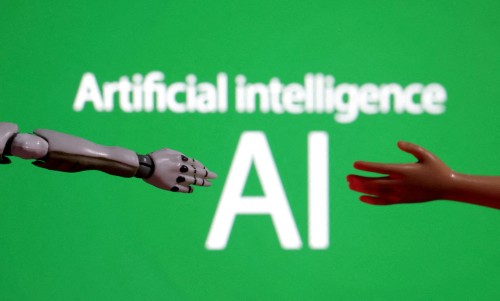By Anna Tong
SAN FRANCISCO (Reuters) – – A former OpenAI researcher has raised $40 million for a startup that will build artificial-intelligence models that connect emotionally with humans via voice, the company said on Monday.
The startup, WaveForms AI, is backed by Andreessen Horowitz and valued at $200 million, CEO Alexis Conneau told Reuters.
Conneau co-created the voice mode capability on OpenAI’s GPT-4o model, which when released earlier this year showed off the capability to respond in real time with no delay, as well as handle interruptions – both hallmarks of realistic conversations that had to date eluded AI voice assistants.
After the launch, OpenAI CEO Sam Altman posted the word “her” on social media platform X, in what appeared to be a reference to the 2013 film of the same name by Spike Jonze about a man who fell in love with his AI assistant, voiced by Scarlett Johansson.
OpenAI’s launch of GPT-4o became controversial when Johansson accused the startup of copying her voice in the movie. OpenAI said the voice was not an imitation of Johansson and that the company used a different voice actress.
Conneau, along with WaveForms AI cofounder Coralie Lemaitre, said the startup will use the funding to train new audio AI models that solve the problem of making voice conversation with an AI bot feel indistinguishable from a human. He added that audio is the key to making AI interactions feel “deeply human.”
“Audio … conveys emotions and provides emotional responses back to users,” he said.
Conneau said the company plans to build a consumer software product that will focus on the emotional connection between the user and the AI, but declined to provide more details.
“The idea is to create new, more immersive experiences with AI, ones that feel more enjoyable,” he told Reuters. “There are many companies right now that are focusing on superintelligence, but not so much on the quality of the human-computer interaction.”
(Reporting by Anna Tong in San Francisco; Editing by Matthew Lewis)





